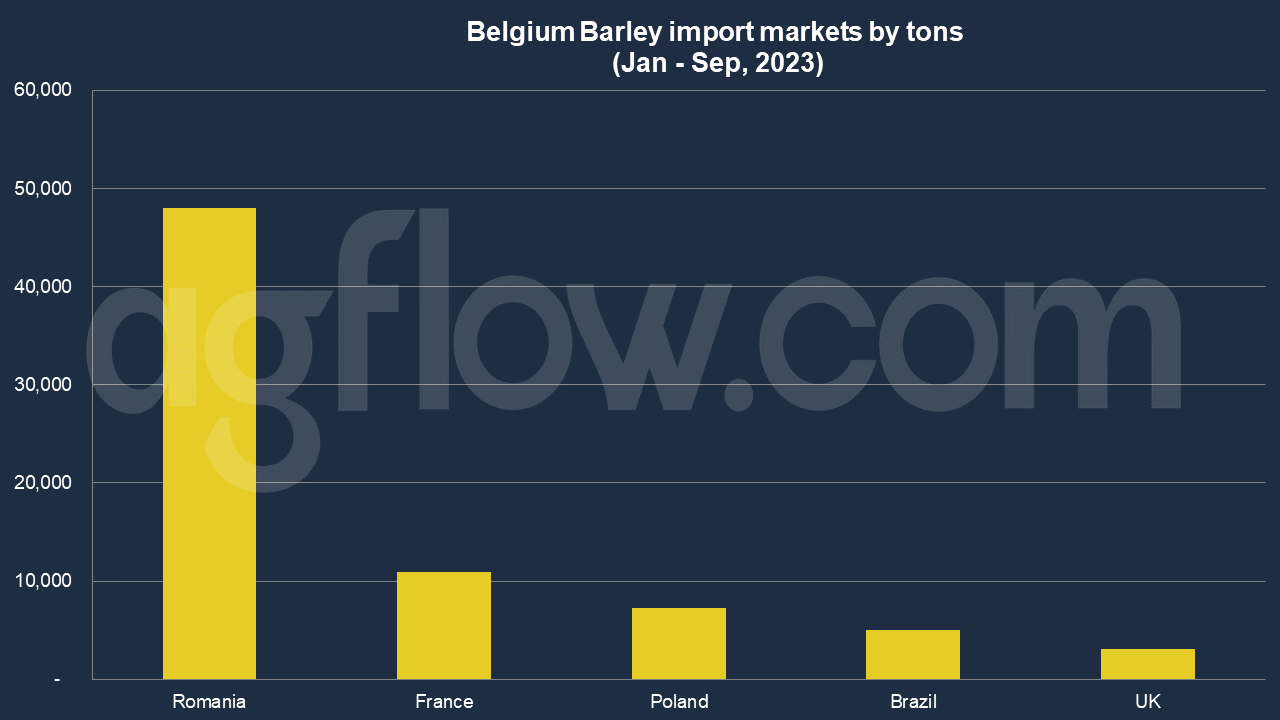Belgium and Barley: Navigating the Complexities of Trade and Imports in 2023
Talk to our team about AgFlow's offering →
Reading time: 2 minutes
Barley, a golden grain that whispers tales of ancient times, has long been an integral part of global agriculture. The significance of this crop extends beyond just its history; it’s also a pivotal player in modern-day trade, especially for countries like Belgium. But what factors have shaped the trajectory of Belgium’s barley trade and imports this year, and what complexities lie beneath the surface?
The Golden Grain in the Heart of Europe
Belgium, situated at the crossroads of Western Europe, boasts an impressive agricultural legacy. Yet, when it comes to barley, the dynamics are more intricate than what meets the eye. The country not only utilizes barley in its renowned breweries but also as a pivotal grain for livestock feed. But what is steering the course of Belgium’s barley imports in 2023?
Market Demand and Consumer Preferences
In Belgium, summer barley is used almost exclusively, as its growing period is a hundred and fifty days and it is ready for harvesting in July or August. Barley malt is to beer as grapes are to wine.
The year 2023 saw a resurgence in the demand for organic and sustainably sourced barley. Consumers globally, and especially in Belgium, are becoming more environmentally conscious. Does this mean a surge in organic barley imports for Belgium? One might think so. However, balancing the demand for organic grains while ensuring affordability for its citizens is a tradeoff that Belgium grapples with.
Is organic barley more beneficial? Certainly. Is it also more expensive? Undoubtedly. Herein lies the challenge – how does Belgium continue to uphold its commitment to sustainability while managing the economic implications?
Climatic Impacts and Crop Yield
The changing global climate hasn’t spared Europe, and Belgium has felt its impact. The year’s unpredictable weather patterns have caused fluctuations in barley yields, both domestically and from key export regions. Does Belgium then consider diversifying its import sources or investing more in climate-resistant crops? It’s akin to walking on a tightrope: On one hand, diversifying can mitigate risks, but on the other, it can mean higher costs and potential quality variations.
Trade Relations and Global Politics
The role of global politics in shaping trade cannot be understated. With changing alliances and economic policies, Belgium’s traditional trade routes for barley are under scrutiny. Is it wiser for Belgium to solidify existing partnerships or explore new avenues in an ever-shifting political landscape? Again, the answers are not black and white.
According to AgFlow data, Belgium imported 48,000 tons of Barley from Romania in Jan – Sep 2023, followed by France (10,875 tons), Poland (7,208 tons), Brazil (5,000 tons), and the United Kingdom (3,060 tons). Total imports hit 74,143 tons. Average volume of shipments was 10,591 tons. Belgium imports Malting Barley form the UK, France, and Brazil.

Looking Ahead
While barley might seem like a simple grain, the intricacies of its trade and import for Belgium are multifold. Balancing consumer demands, climatic challenges, and political considerations is impossible. As the winds of 2023 continue to shift, Belgium’s decisions in the barley trade will be watched keenly by its citizens and the global agricultural community.
In the vast tapestry of global trade, barley, and Belgium are but a single thread. Yet, the decisions made here could ripple across continents, influencing global trade strategies. So, as we sip on that Belgian beer or watch our livestock thrive, let’s spare a thought for the golden grain and the land that brings it to us.
Try AgFlow Free
Access Free On Updates for Corn, Wheat, Soybean,
Barley, and Sunflower Oil.
No Credit Card Required & Unlimited Access In Time

